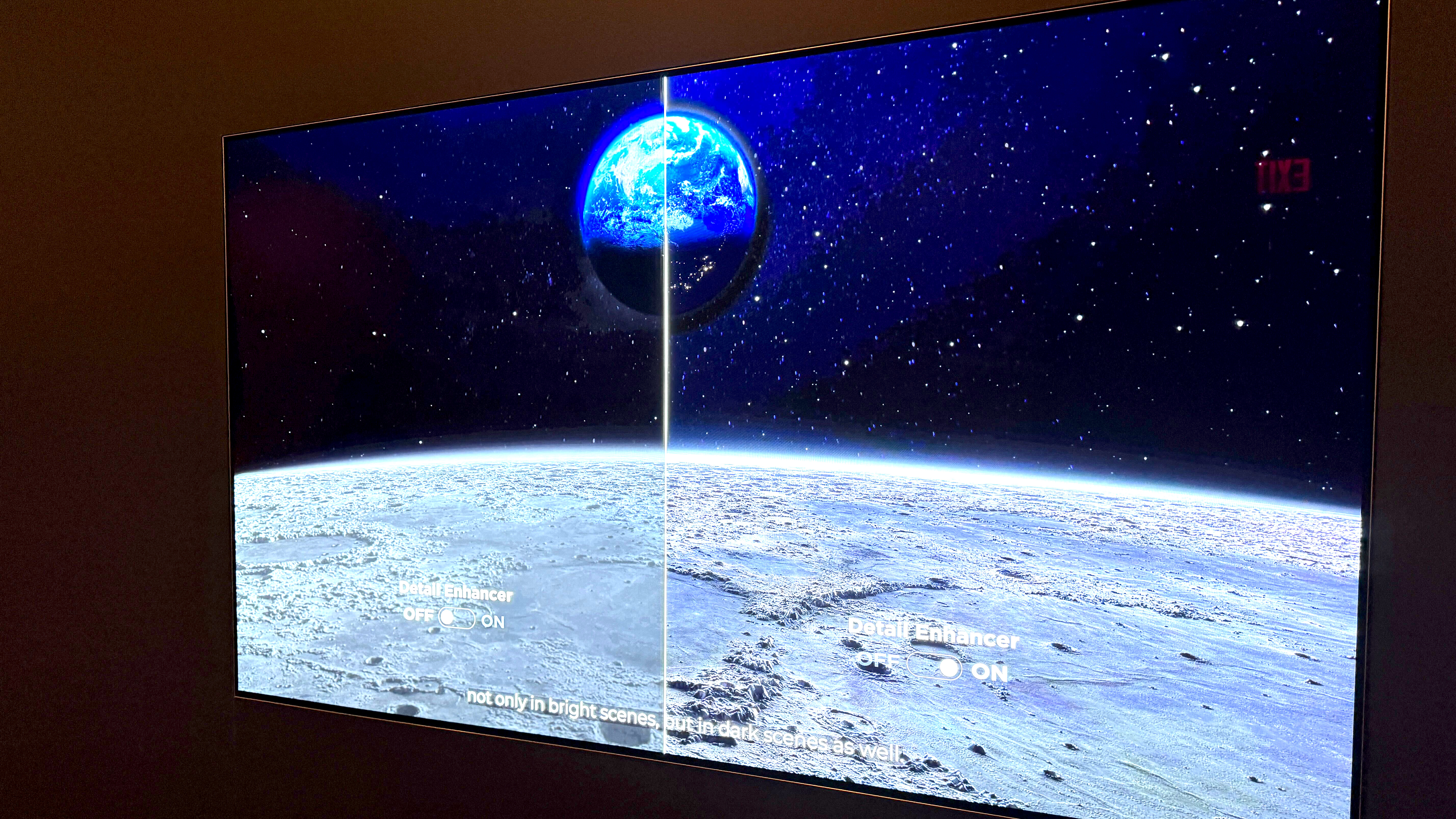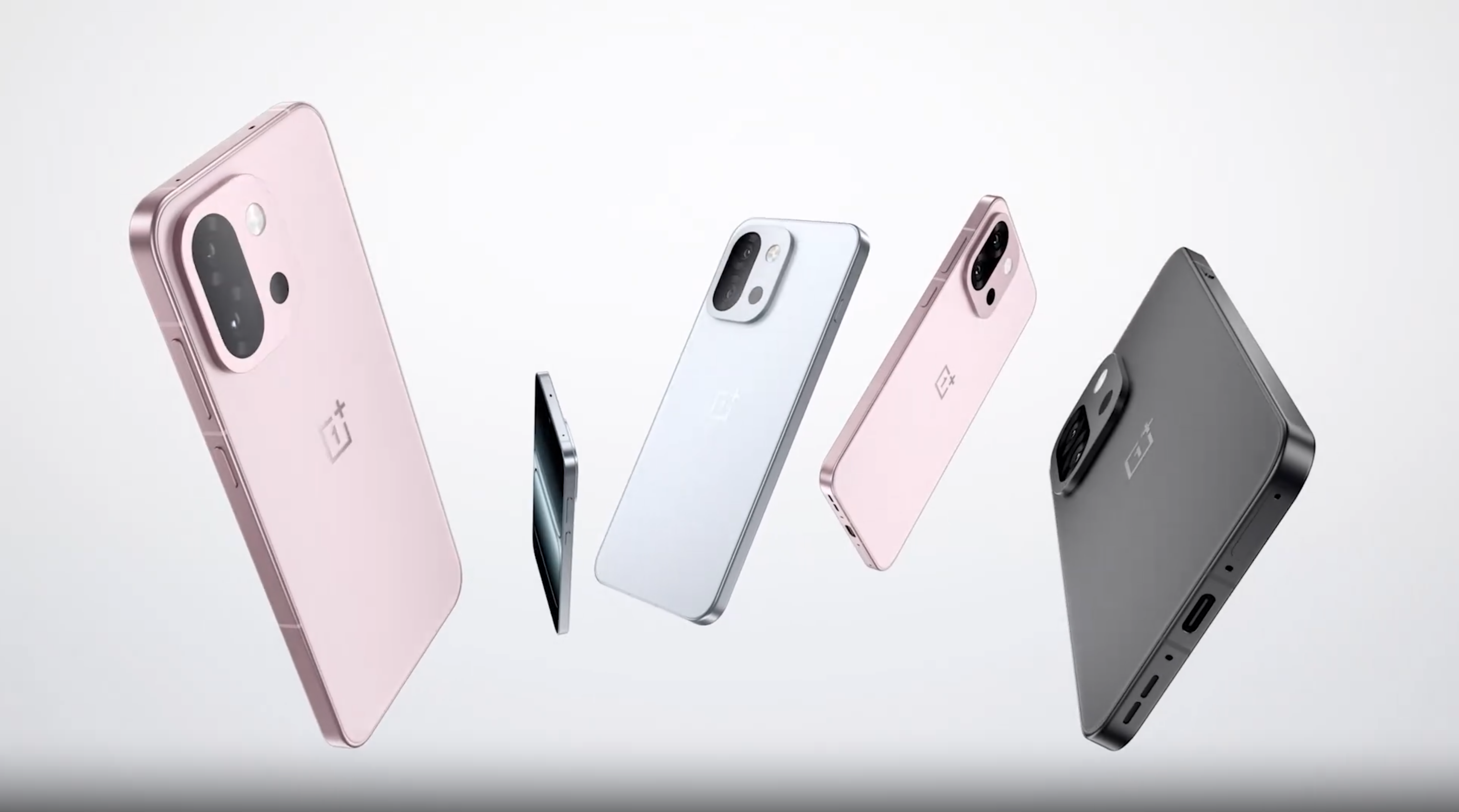
LG Electronics might be the one making waves with its newly unveiled brighter LG G4 and M4 OLED TVs, but most of those improvements inside of those TVs are due to the hard work that LG Display has put into this year's OLED panels.
Dubbed 3rd Generation META 2.0, the latest batch of OLED panels from LG Display offer a peak brightness of up to 3,000 nits, an increase of around 42% compared to the OLED panels used by older OLED models. And I saw this panel in action here at CES 2024.
To achieve this level of brightness, LG Display has changed the layout of the billions of micro lenses used in the display to reduce the amount of light lost internally. Not only does this create brighter, more vibrant images, but it creates a wider viewing angle of up to 160 degrees without color desaturation.
It's unlikely that LG Electronics' OLED TVs will be able to utilize 100% of the panel brightness — there's the longevity of the TV to think about — but, as we've already reported in our LG TV 2024 lineup article, you can expect significantly higher levels of brightness from this year's top LG OLED TVs.
Making more out of META
We first saw META panels — OLED displays with Micro Lens Array technology — at CES 2023. This year's technology is very much an evolution of what we saw then.
Besides the higher brightness, META 2.0 panels support LG Display's ‘META Multi Booster’, the company’s exclusive brightness-optimizing algorithm that "analyzes each scene in extreme detail to enhance not only peak brightness ... but also color brightness for more refined and optimized picture quality".
LG Display will be making 4K META 2.0 panels in a number of sizes, from 55 inches up to 83 inches, and 8K META 2.0 panels in both 77- and 88-inch sizes.
Sign up to get the BEST of Tom's Guide direct to your inbox.
Get instant access to breaking news, the hottest reviews, great deals and helpful tips.
Like other OLED panels, the new screens from LG Display don't emit as much blue light (which LG claims makes them better for before-bedtime viewing) and use less plastic than their Mini-LED counterparts.
That means Sony TVs will get the boost, too
Remember that LG Display doesn't just supply OLED panels to LG Electronics — it's one of the only manufacturers of OLED displays in the world. That means companies like Sony and even Samsung source some of their panels from LG Display.
So does that mean that OLED is going to steal the brightness crown from Hisense or TCL's new Mini-LED TVs? In some cases, sure, but both Chinese TV makers aren't resting on their laurels — they've both announced TVs at CES 2024 with a peak brightness in excess of 5,000 nits.
Again, we'll need to test all of these TVs for ourselves to verify these manufacturers' claims, but based on what we've seen on the ground at CES, 2024 is going to be an exceptionally bright year for TVs of all shapes and sizes.
Check out our CES 2024 hub for all the latest news from the show as it happens. Follow the Tom’s Guide team in Las Vegas as we cover everything AI, as well as the best new TVs, laptops, fitness gear, wearables and smart home gadgets at the show.
And be sure to check out the Tom's Guide TikTok channel for all the newest videos from CES!

Nick Pino heads up the TV and AV verticals at Tom's Guide and covers everything from OLED TVs to the latest wireless headphones. He was formerly the Senior Editor, TV and AV at TechRadar (Tom's Guide's sister site) and has previously written for GamesRadar, Official Xbox Magazine, PC Gamer and other outlets over the last decade. Not sure which TV you should buy? Drop him an email or tweet him on Twitter and he can help you out.
